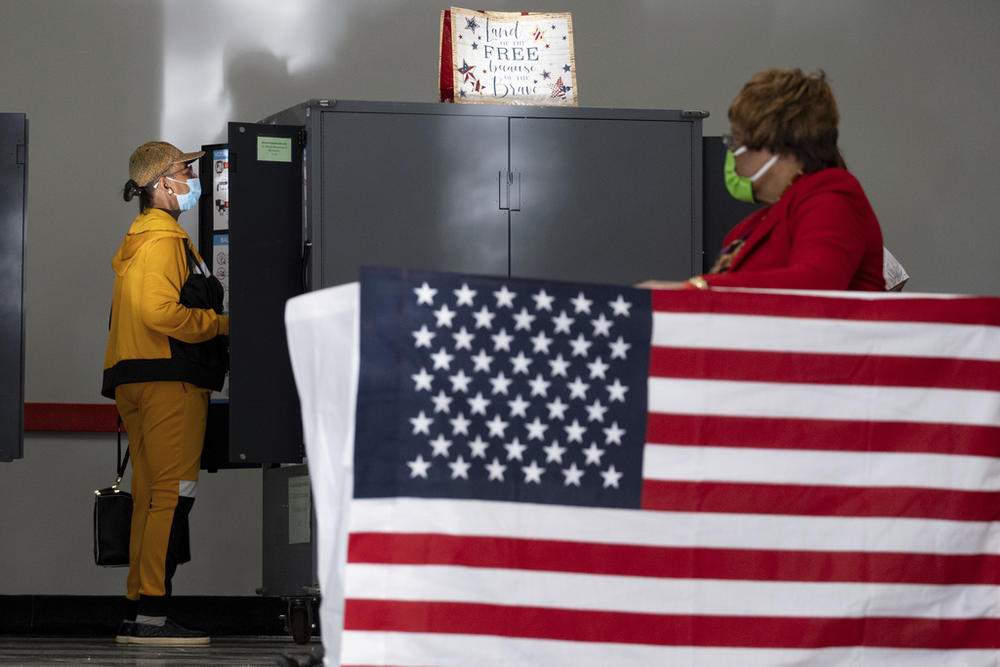
Caption
A voter marks her ballot during the first day of early voting in Atlanta on Oct. 17, 2022. Elected leaders in Georgia's most populous county — a Democratic stronghold — on Wednesday, June 7, 2023, rejected a Republican nominee for the county elections board who had challenged the eligibility of thousands of voters.
Credit: AP Photo/Ben Gray, File

